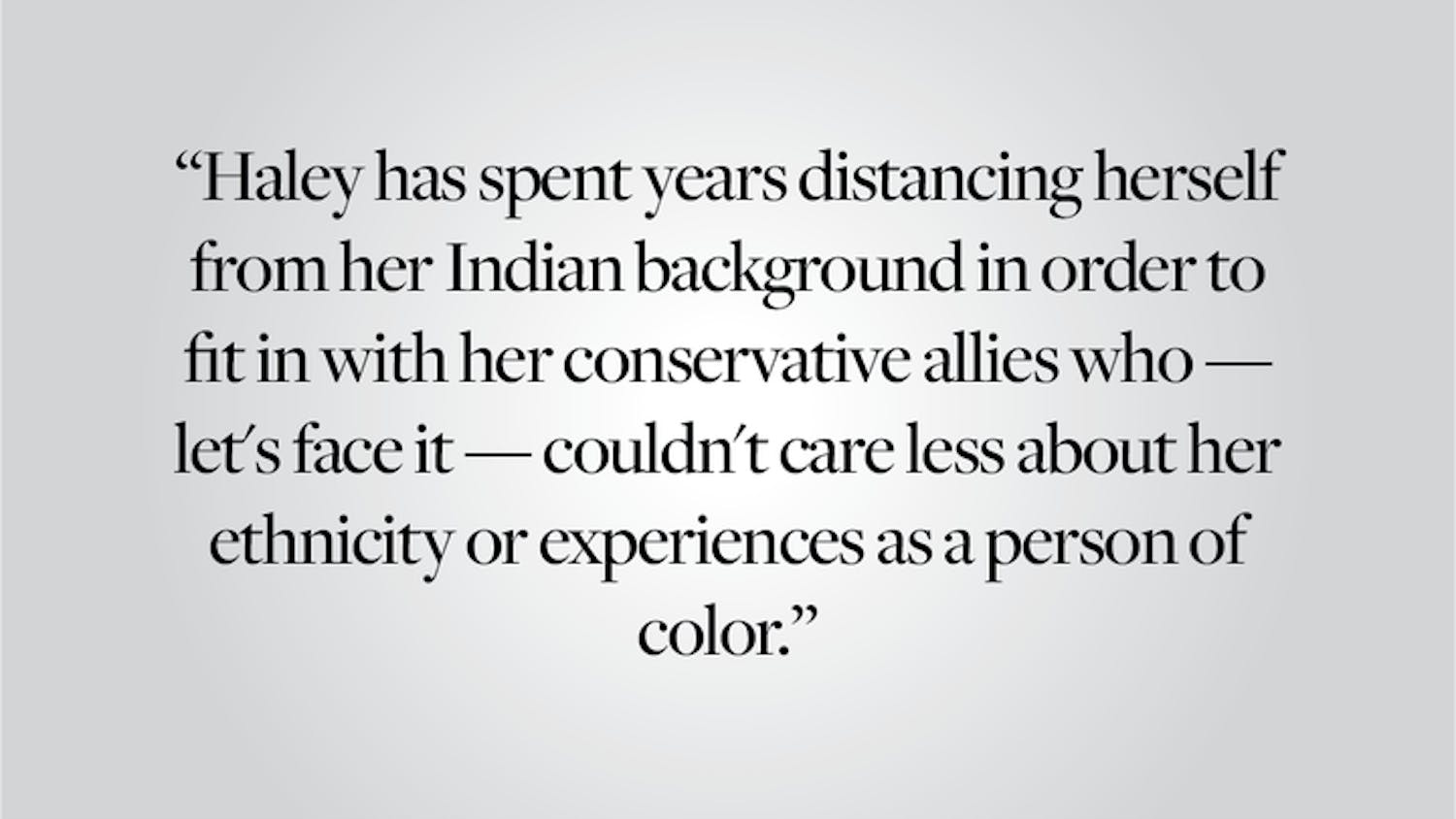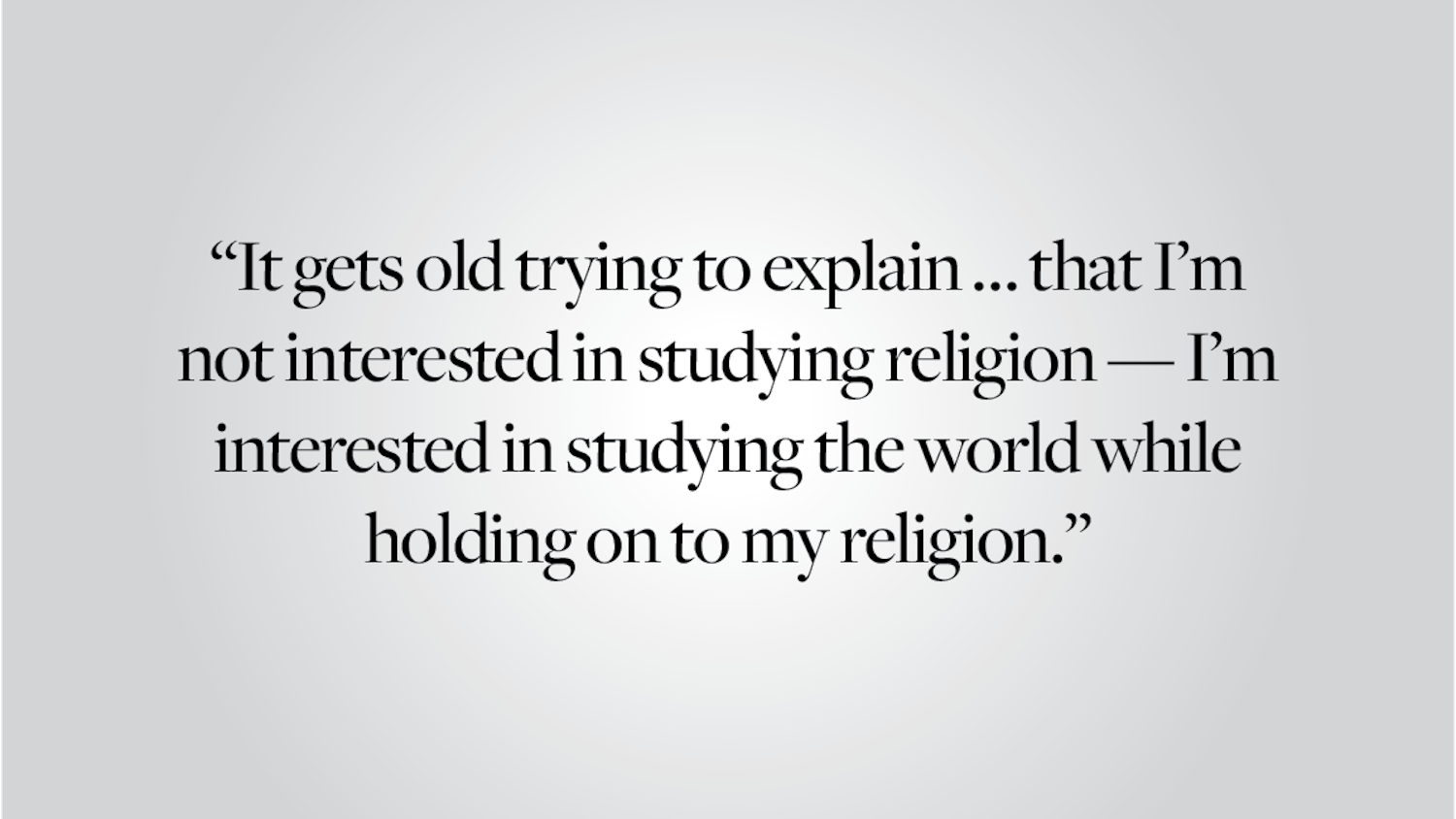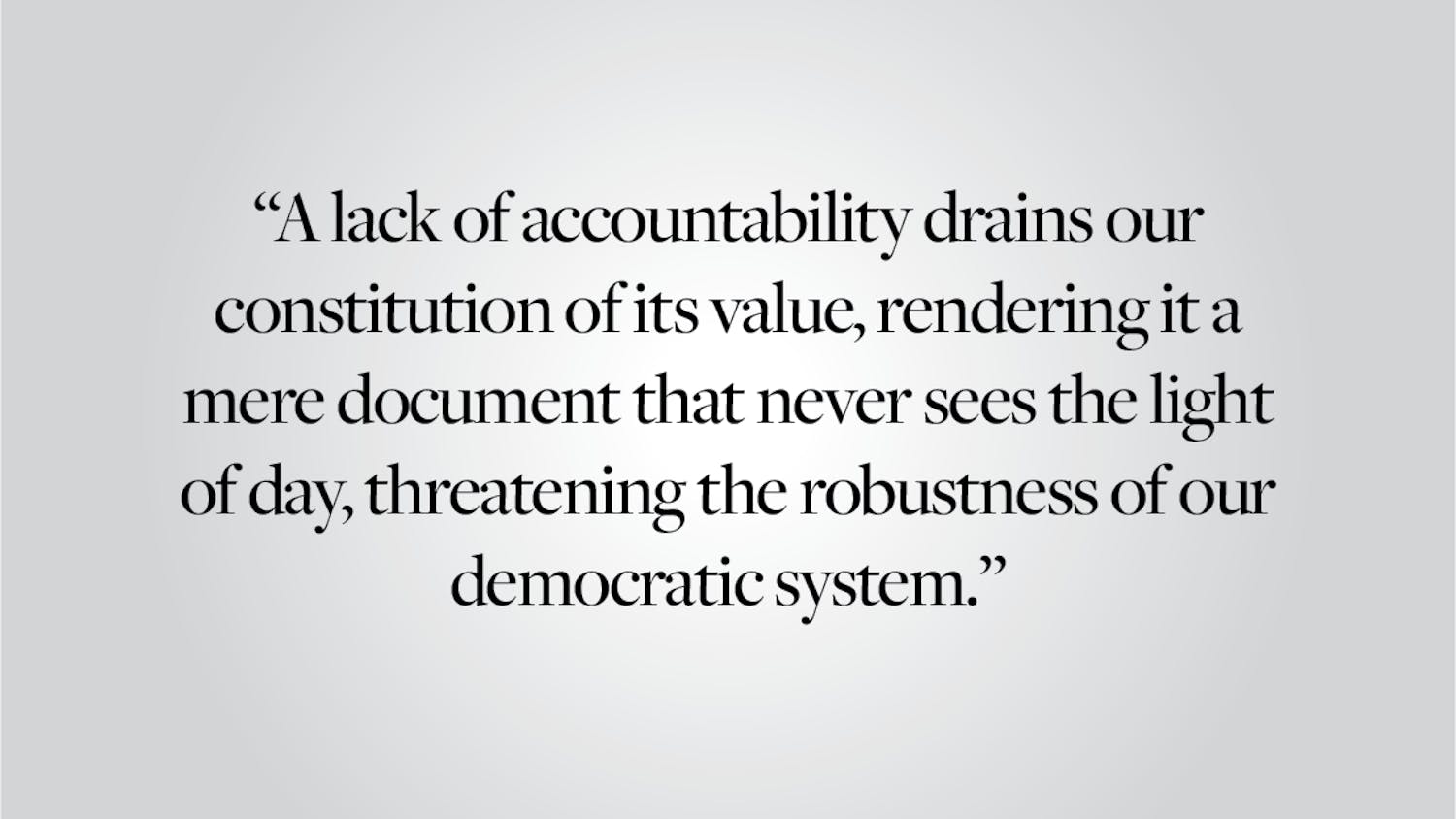Over the past few weeks, we’ve seen campus debate unfurl over whether a couple of recent Herald op-eds are a matter of freedom of speech. This discussion, stemming from The Herald’s offending many students of color by publishing two controversial op-eds in early October, pits a slippery-slope argument in favor of free speech against protecting readers from emotional harm that can result when language belittles aspects of their identities.
Free speech is a tricky issue because there is a fine line between promoting First Amendment rights and being blatantly offensive. While all students can practice their right to free speech, they should also practice common sense. Freedom of speech does not guarantee a platform for every view, nor does it protect those views or the speaker from criticism.
We as a campus should attempt to define what exactly freedom of speech entails, the extent to which this constitutional provision applies to a private publication and the limits of this right. On our campus, we tout open intellectual discourse and academic freedom. These are wonderful ideals and certainly ones that foster growth. We, as a student body, however, should require that the ideas represented in this exchange are responsibly chosen.
There is a difference between using scientific evidence to make an argument and using pseudoscience to mask what are inherently political claims. Defending the latter on a free speech basis detracts from the racist, sexist and classist sentiments these arguments convey. We should not ignore or deny the fact that these comments are harmful to the mental health of the marginalized people whom they offend.
The purpose of a college newspaper differs from that of a mainstream publication. A good college newspaper will elect to present all sides of an argument and provide a platform for all voices on campus. At the same time, a college paper must consider the reality that some of its readers experience marginalization because of their racial or gender identity every day.
Seeing articles that make these individuals feel further isolated and then seeing them defended on the basis of free speech can be extremely detrimental. When we as a campus could be having valuable discussions about race, we are instead reverting to what are essentially “colorblind” arguments around free speech. For many minority students, this is incredibly frustrating, especially because the ability to advocate free speech is not independent of privilege.
In early October, a collection of black students and student organizations sent a letter to The Herald in response to the two initial op-eds. This letter, which is echoed by most student groups of color that sent simultaneous letters, expresses a sense of isolation many students of color feel from the major newspaper on this campus.
In the letter, students put it simply: “As the oldest and most prominent publication on this campus, we hold the BDH accountable as an organization for their practices and how they approach controversial issues. Everyone is entitled to their own opinions, whether or not students disagree; however, as an organization with privilege, power and a platform, the BDH is, and will be, held to a higher standard than any one individual.”
Ignoring the realities marginalized students face in favor of a free speech argument isn’t hard to do, but it isn’t without emotional consequence. Initial feelings of hurt for many minority students after the publication of the two op-eds have been compounded by the framing of the fallout as an issue of free speech.
Many minority students have chosen to disengage from the paper entirely. While I personally advocate discussion over silence, the choice of these students to separate themselves from the paper should make those who advocate complete freedom of speech pause. I believe most students of color are all for free speech, but freedom of speech does not give one a pass to infringe upon the well-being and dignity of other individuals. Hopefully those who want to argue for complete freedom of speech around issues of race will really consider the opinions and day-to-day experiences of the students their arguments will impact most, and hopefully students of color who feel isolated from the freedom of speech discussion will participate in the debate and allow their voices to be heard.
Feel free to reach out to Sarah Jackson ’16 at sarah_jackson@brown.edu.




